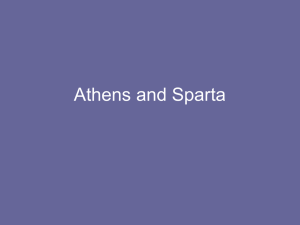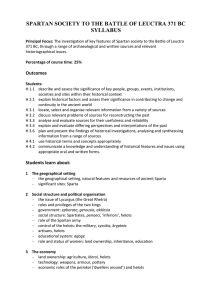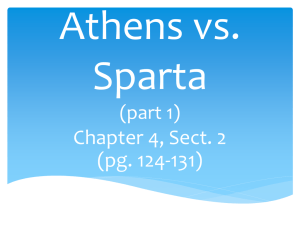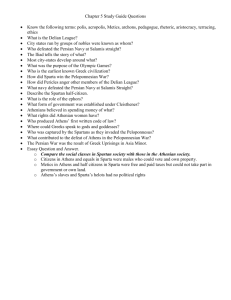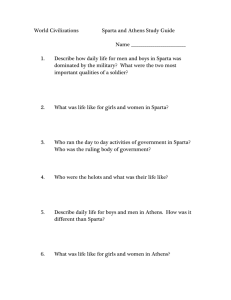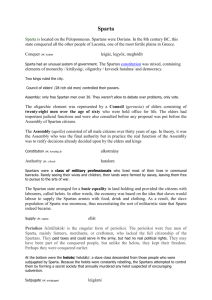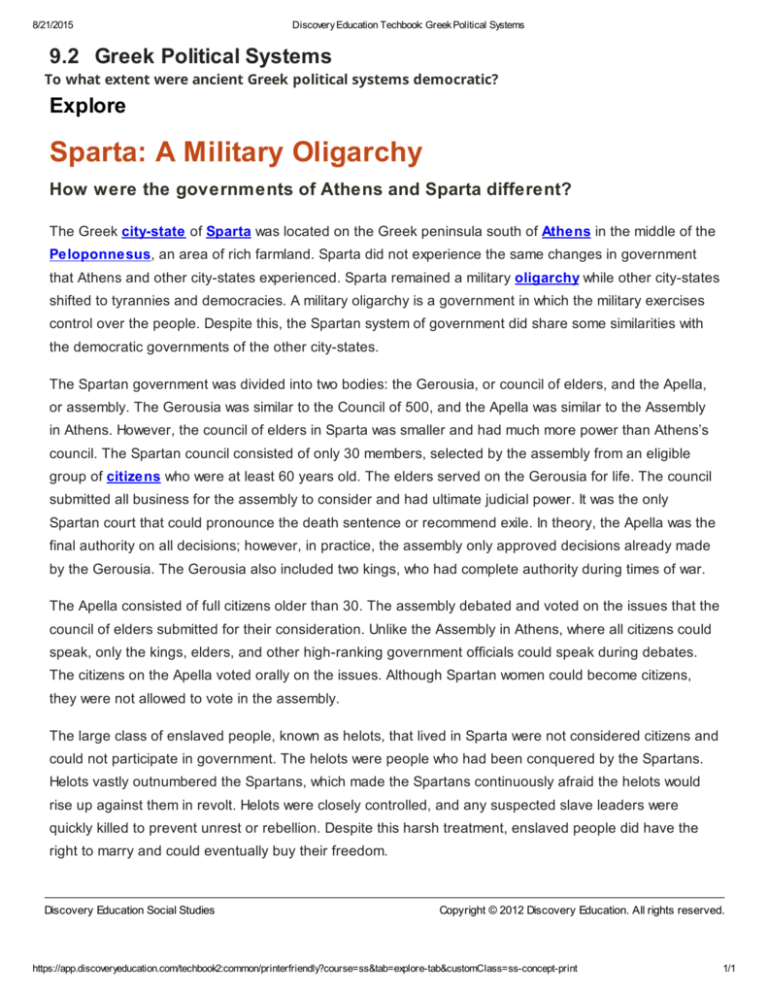
8/21/2015
Discovery Education Techbook: Greek Political Systems
9.2 Greek Political Systems
To what extent were ancient Greek political systems democratic?
Explore
Sparta: A Military Oligarchy
How were the governments of Athens and Sparta different?
The Greek city­state of Sparta was located on the Greek peninsula south of Athens in the middle of the
Peloponnesus, an area of rich farmland. Sparta did not experience the same changes in government
that Athens and other city­states experienced. Sparta remained a military oligarchy while other city­states
shifted to tyrannies and democracies. A military oligarchy is a government in which the military exercises
control over the people. Despite this, the Spartan system of government did share some similarities with
the democratic governments of the other city­states.
The Spartan government was divided into two bodies: the Gerousia, or council of elders, and the Apella,
or assembly. The Gerousia was similar to the Council of 500, and the Apella was similar to the Assembly
in Athens. However, the council of elders in Sparta was smaller and had much more power than Athens’s
council. The Spartan council consisted of only 30 members, selected by the assembly from an eligible
group of citizens who were at least 60 years old. The elders served on the Gerousia for life. The council
submitted all business for the assembly to consider and had ultimate judicial power. It was the only
Spartan court that could pronounce the death sentence or recommend exile. In theory, the Apella was the
final authority on all decisions; however, in practice, the assembly only approved decisions already made
by the Gerousia. The Gerousia also included two kings, who had complete authority during times of war.
The Apella consisted of full citizens older than 30. The assembly debated and voted on the issues that the
council of elders submitted for their consideration. Unlike the Assembly in Athens, where all citizens could
speak, only the kings, elders, and other high­ranking government officials could speak during debates.
The citizens on the Apella voted orally on the issues. Although Spartan women could become citizens,
they were not allowed to vote in the assembly.
The large class of enslaved people, known as helots, that lived in Sparta were not considered citizens and
could not participate in government. The helots were people who had been conquered by the Spartans.
Helots vastly outnumbered the Spartans, which made the Spartans continuously afraid the helots would
rise up against them in revolt. Helots were closely controlled, and any suspected slave leaders were
quickly killed to prevent unrest or rebellion. Despite this harsh treatment, enslaved people did have the
right to marry and could eventually buy their freedom.
Discovery Education Social Studies
Copyright © 2012 Discovery Education. All rights reserved.
https://app.discoveryeducation.com/techbook2:common/printerfriendly?course=ss&tab=explore­tab&customClass=ss­concept­print
1/1



